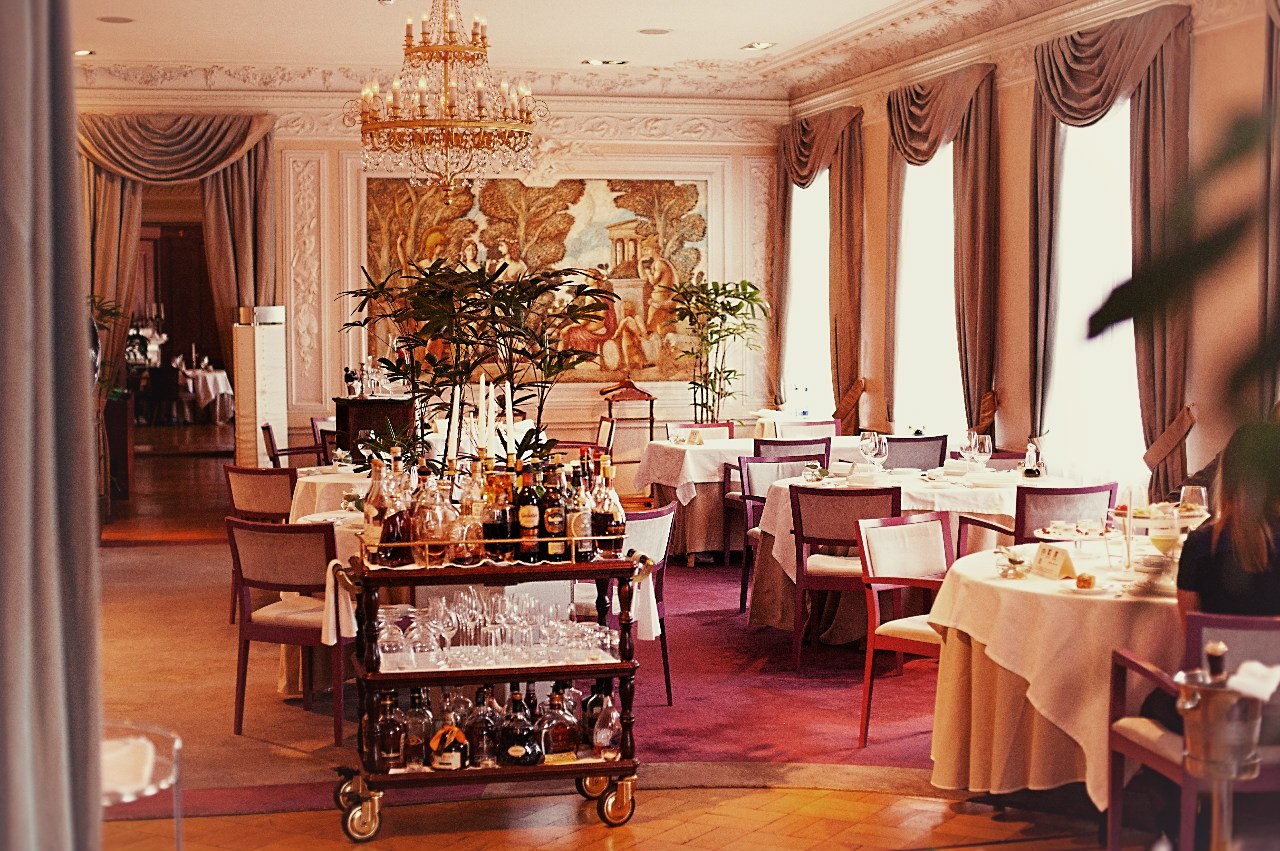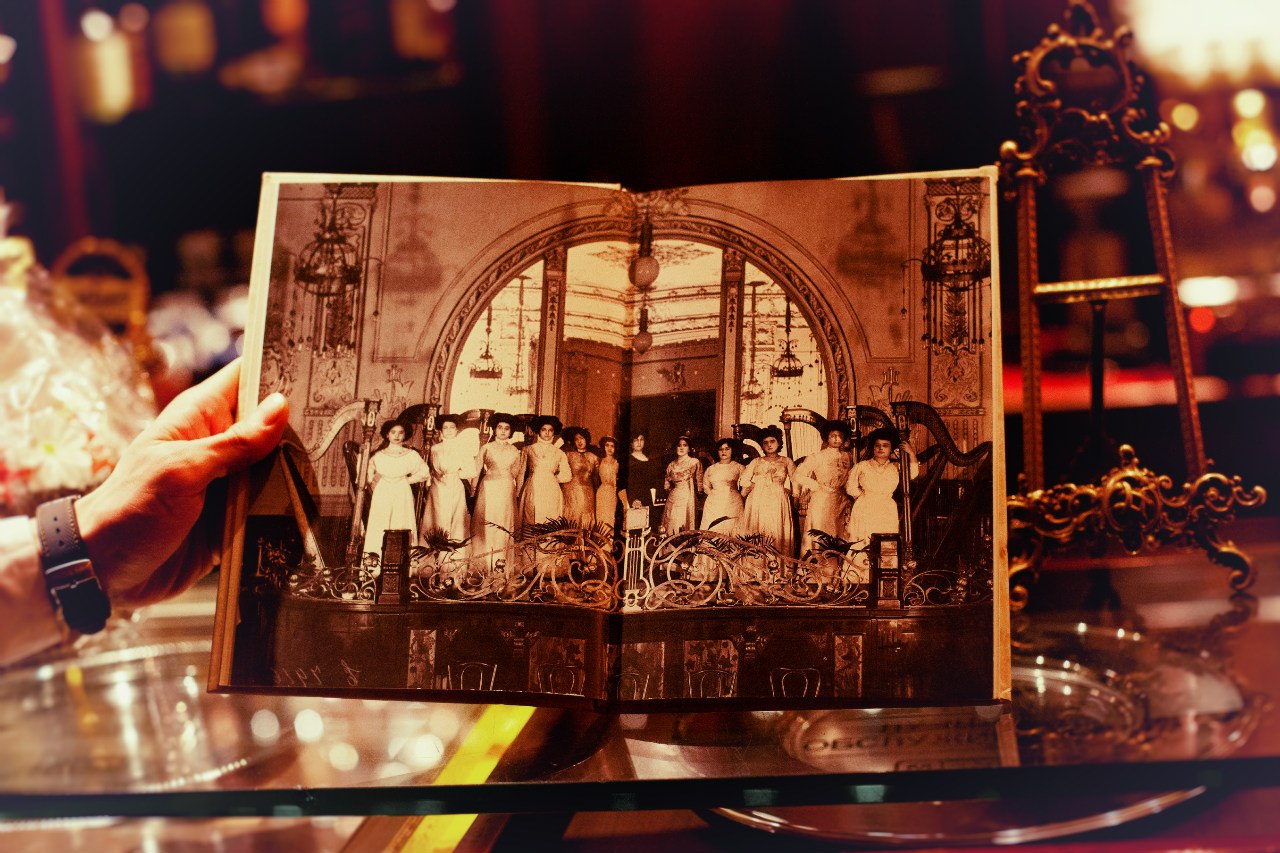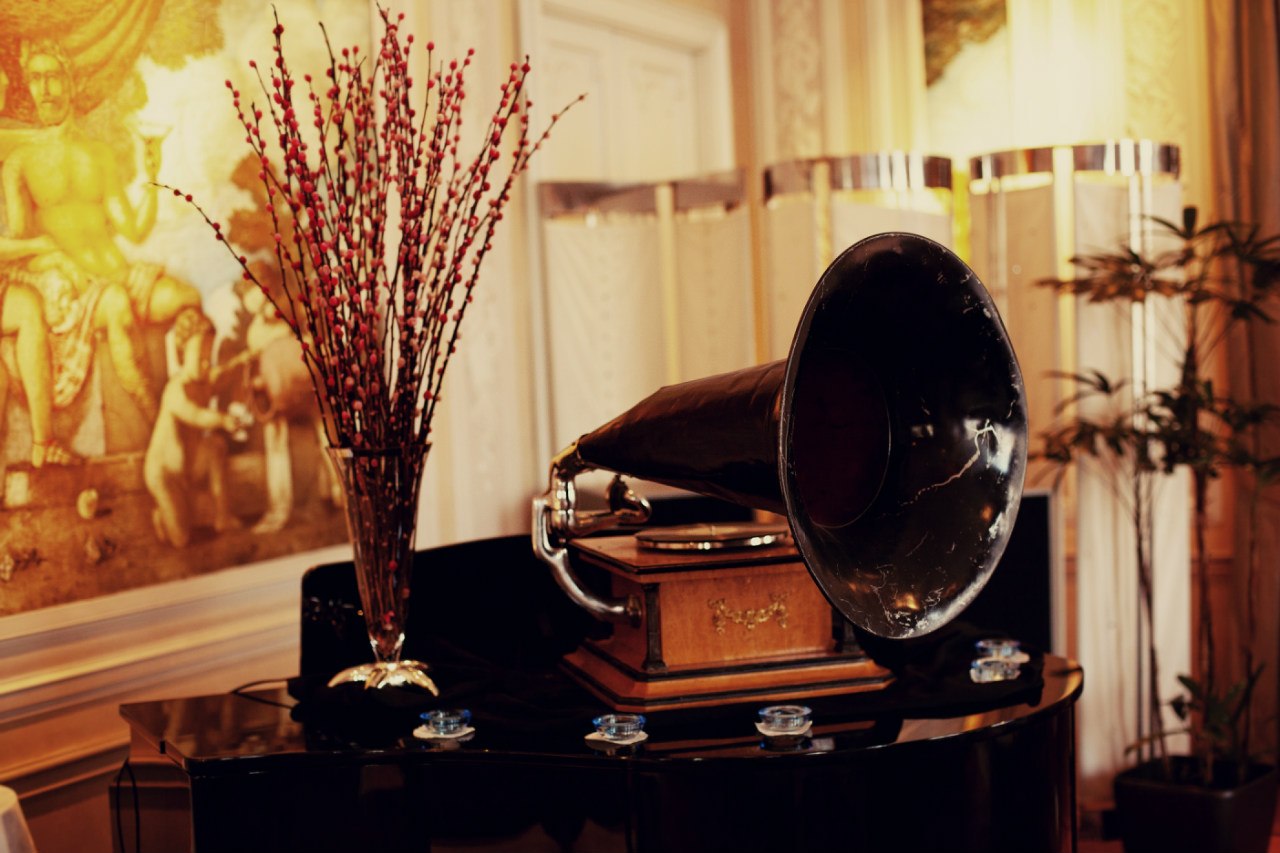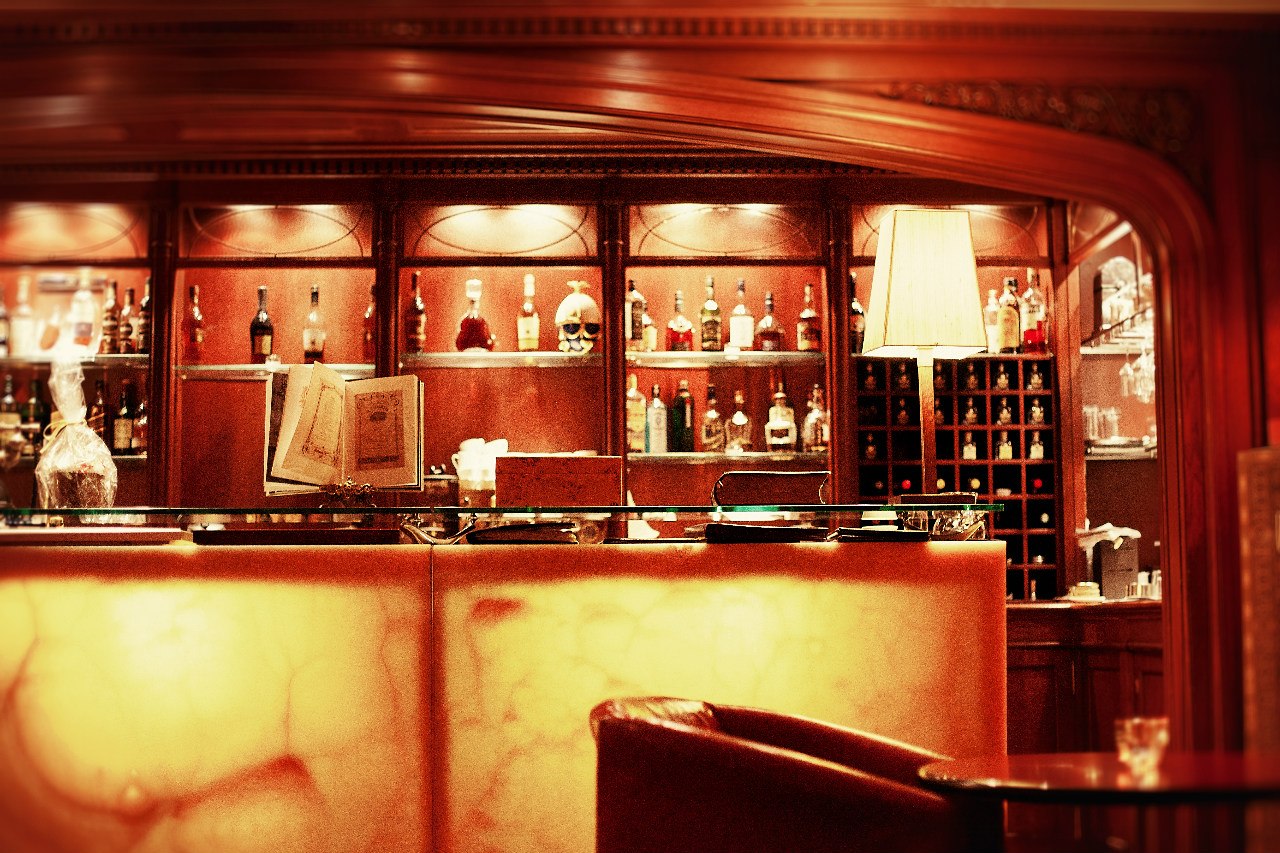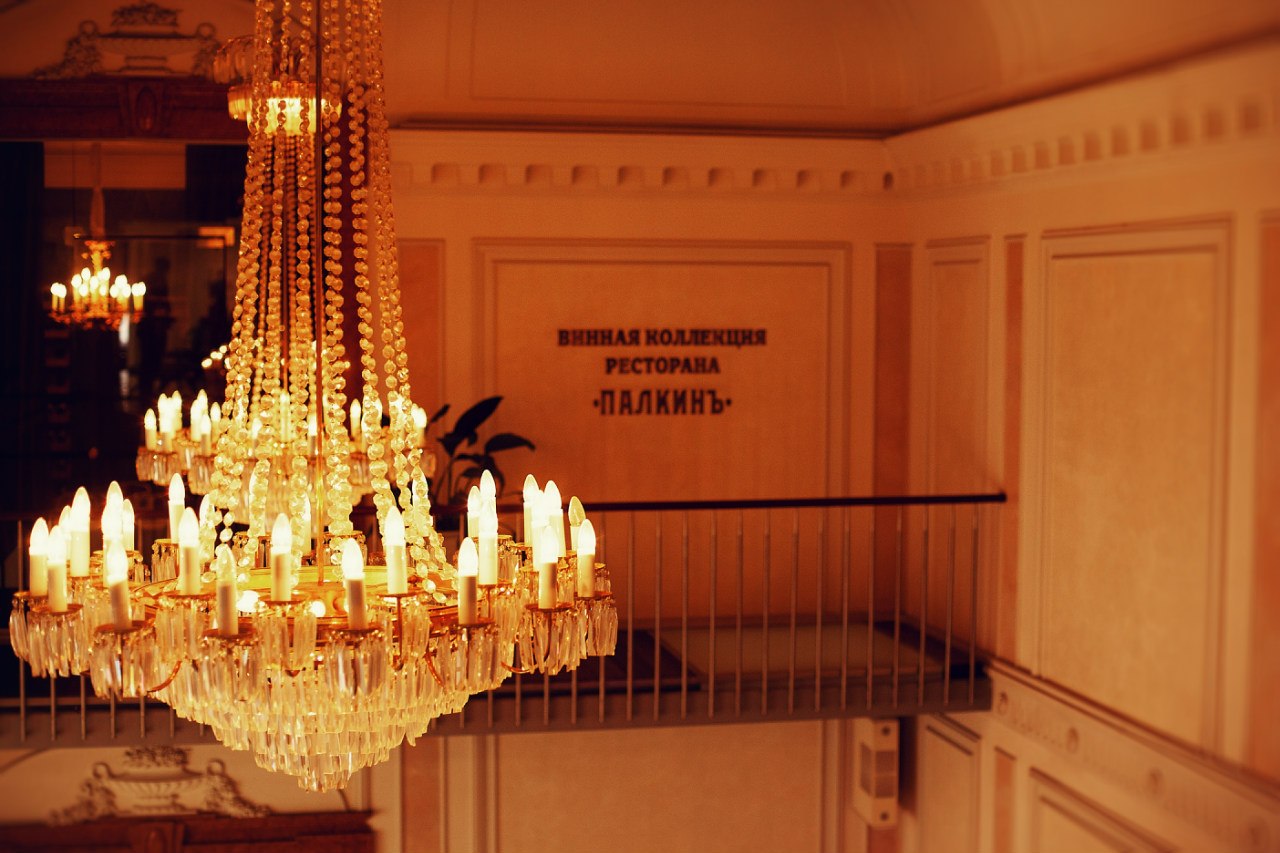PALKIN restaurant (St.Petersburg)
30 мая 2015
You can
count on one hand modern Russian restaurants that have treasured ancient spirit
of exclusiveness and Russian gastronomical traditions within their walls . The
“Palkin” restaurant is one of them. It was visited by Chaikovsky,
Saltykov-Shchedrin, Leskov, Dostoevsky, lawyer Kuni, members of royal family
and many other famous foreign artists and high-ranking persons. Many foreigners
are eager to get here, sometimes it is impossible to book a table – the same
situation used to be many years ago. History and modernity go side by side in
St Petersburg, and it’s no coincidence that “Palkin” has become of the
brightest examples of that. This time
Rustam Navruzov (the managing director of the restaurant) has become our
attendant in the restaurant. We are very thankful to him for his interview and
assistance in creating historical feature.
THE MANY
FACES OF HISTORY.
So, we are
in one of the oldest Russian restaurants. Why “Palkin”? The name originates
from surname of a merchant of top guild - Anisim Palkin, who became the founder
of restaurateurs’ family (The Palkins). He opened his first place in 1785. He
owned more than 10 taverns that used to be the most famous and attended places
of the city that time. Anisim Palkin used to run other his subsidiary companies
from one of his taverns, where the restaurant “Palkin” appeared after 100
years. It was opened by Konstantin Palkin in 1875, the grandson of that Anisim
Palkin. That time the restaurant occupied 2 floors, and the architect Kreizer
overbuilt 2 more floors later. From that time “Palkin” had become one of the
biggest entertainment places in Petersburg. 25 halls used to be here: billiard
rooms that attracted young people, specials rooms like casinos, theatre rooms,
banquet halls, also main halls of the restaurant. “Palkin” played a significant
role in life of St. Petersburg. Chaikovsky used to perform here, Koni used to
visit this place, Saltykov-Shchedrin, Leskov, Dostoevsky were frequent clients
here and literature evenings used to be arranged for them here. Interesting
fact: writers that didn’t shake each other’s hands at street sat at one table
here. The most famous foreign singers and actors of that time performed here
during banquets.
Sometimes amusing situations occurred. For instance,
Saltykov-Shchedrin, according to contemporaries, often visited “Palkin” to kill
loneliness. He enjoyed joking at waiters. That time there was a huge pool with
fish. You could order the fish. So, Mikhail used to show at some fish, asked to
weight it, waiters started to bother, weight, but that guest suddenly used to
refuse to order it. Waiters were furious, but for Saltykov-Shchedrin that was
funny entertainment. Yes, these things happened.
When Konstantin Palkin passed
away (the end of 19th century), his wife tried to tackle the business. But that
was so huge business that she couldn’t cope with it. Then the restaurant was
repurchased by Soloviev (merchant of top guild), who owned gastronomic shop on
the first floor, where he sold exotic things from all over the world. He was
one of the most respectable and rich persons in the city. But then “dry law”
forced almost all pubs of the city to close. “Palkin” was trying its best to
exist, but there were too big expenses. Eventually it got empty and it had to
be closed (in 1918-1919). Then there was period of repressions. Prison was
arranged the cellar. Second floor was occupied with cinema, where was the
opening night of famous film “Chapaev” and Joseph Stalin attended it, as that
was his favourite film. On other floors there were communal flats; during
blockade premises were occupied with barracks. So, history of this restaurant
has suffered many difficult periods.
At the
beginning of 90-es the question of rebirth of the restaurant came up. After
3-year-period of renovations, in March 1995, at the place of cinema one elite casino-club
“Premier” was opened. It was with nice
restaurant that in no small degree inherited unique club spirit of “Palkin”.
Igor Bogdanov, historian, during two years was collecting historical data about
“Palkin” and eventually he wrote a book with 12 pages that was issued in amount
of 7oo copies. Everything was
reconstructed here according to that book. Reconstruction was confided in employees
of Russian museum of Hermitage. They
were reconstructing it about 5 years, according to photos, magazines, personal
stories (for example, Bunin wrote about the restaurant and others). Apart from
safe of Konstantin Palkin, other ancient details didn’t almost remain. But
ancient cookery book remained here. It was very old, third of it was
irreversibly lost, but the rest of it was recovered.
READ MORE...
READ MORE...
INTERIOR DETAILS.
Now the
restaurant looks like a museum in best traditions of Russian art – thanks to
wonderful work of renovators. Walls of “Palkin”, for example, are decorated
with mosaic work of Alexander Zadorin, whose works can be found in Hermitage
and in the Russian museum. In the fireplace room (it was office room of
Konstantin Palkin) all facing work was almost reconstructed and the chimney is
cleaned once or twice a year. By the way, it is considered that if there is
white smoke above “Palkin”, it means that the fireplace room is busy and it
cannot be booked that day.
Almost
every table is decorated with fresh flowers – and it is everyday work of
florists. Chess table is also remarkable, many years ago guests used to play
chess with bar keeper that was considered to be the most respectable person of
the restaurant. He weighted about 150 kg (it was a requirement for this
position) and nobody could disobey him; even guests were afraid of him,
according to rumors. “Azbuka” – that was
the name of the game that was offered to play with the bar keeper. Different
drinks were put on a chess table and guests had to drink and tell its content.
Generally speaking the meaning of this game was to outgame the bar keeper. If
guest managed to win, the restaurant had to pay the bill of the guest, but if
he lost – than guest should pay for all drinks. But honestly speaking,
outgaming of bar keeper was almost impossible.
MENU.
Menu hasn’t
changed a lot. Many dishes were taken from old cookery book. For example, “hare
cutles” were served in honor of wedding of Nicolas the second and Alexandra
Fedorovna in the Winter Palace. Or “smoke steerlet”, which is smoked in white
wine, is served in the same way, as it used to be done for Saltykov-Shchedrin.
The same tradition concerns different cabbage soups (shchi), pickle soups
(rassolnik), classical Olivier (with serpent grass, veal tongue). The kitchen
still remains Russian and French.
WINE.
DEVELOPMENT OF RUSSIAN WINE CULTURE.
Nowadays
the restaurant is studying thoroughly
Russian winemaking. There is a view that Russian winemaking “is kneeling
up” and actively developing. For example, Krasnodar region can offer quite good
wine, which quality is getting better from year to year and it is attracting
enologists from Italy, France and other countries. Quite often Russian wine
during “blind” testing can win its Italian competitor, for example. This
situation is becoming more and more frequent.
TODAY’S LIFE
OF RESTAURANT.
(interview
with the managing director)
- How does
the situation look like in terms of attendance and persistence towards crisis?
- The rush
around the restaurant doesn’t stop even nowadays. It is very popular, especially among famous
persons: politicians, artists, musicians. We think that achievement of success
in possible in premium segment. Even now, look: all premium hotels are
overwhelmed because of convenient currency rate. And all places here are
already booked at popular dates. We
choicely select products of good quality – and this makes some difficulties, as
we have to do import phaseout because of sanctions. Now 80 % are native
products (meat, fish). Prices are quite high here, as our restaurant is in
premium segment (lux) and our guests are well off people. But the restaurant
can offer dishes for reasonable price. Different dishes are in different price
segments. Here you can find many things based on your own preference, including
wine.
- What other
features of the restaurant can you distinguish?
- One of the
most important features – we have our own service school. It is very important,
when restaurant of such level has its own descendants. It is very difficult to
find a waiter that would be absolutely devoted to company and that would be
sincerely involved to its life. It is considered that position of the waiter is
kind of a part-time job, but here we break these stereotypes. Our waiters are
well paid, as we think that good waiter, barman or sommelier are important
assets of the company.
- So, you
would never take anyone “from a street”, wouldn’t you?
- We can
hire such person, but often they cannot survive here, as it is very challenging
to readjust from one type of service to another. There are projects, where
service is not the main thing, where accents are made on interior luxury, but
we consider that interior luxury is secondary thing. The most important is good
food, high quality of products and professional team.
- What about
staff? Is it stable?
- Yes, it
is. Normally turnover in restaurants is very high, but here it almost doesn’t
exist. People work here during 5-6 years, even 10. This culture in Russia is
very rare. In Europe you can notice it almost always. There you can meet old
waiter, who is very positive and nice and, at the same time, who is a great
professional. Try to find such person in Russia! Perfect waiter can be either
brought up, or you can draw away someone. But for us it is more convenient to
have own service school. All have good working conditions here, good salaries
and good relationship with directors that is also quite important. And, of
course, high quality of products. We even sometimes overpay for products to
comply with company mission, we can bear big expenses, but, anyway, our guests
will be offered the highest quality of product.
- What is
the mission and goals of “Palkin”?
- I would say
that mission is to provide every guest with presidential service, irrespective
of his rank and status. We do not share our guests into any assumed groups.
Goal is profit. Anyway, profit is goal, but all have their own ways of
receiving it. Company should win, your workers should win, your guests should
win – than it will bring to some synergy.
- Let’s talk
about guests of “Palkin”. How does restaurant build relationships with its
guests, especially when “difficult” guests visit?
- Guest is
always kind of a child that should be appeased. Curios happen. There are
difficult guests, when they come in a bad mood, when they act disrespectfully.
In this case we try to work with him carefully, but when it goes beyond the
limit, we refuse to serve this guest, as we value respectful attitude towards
our staff. Moreover, we take care of guests in some difficult situations, for
example, we take him to his house or pay attention to our guests in other ways.
- What
about foreign guests and their percentage?
- Well, they
are about 80%. At all times they were more that 50%, as Russian and French
cuisine supposes good flow of foreigners. Also, almost every foreigner wishes
to taste high Russian cuisine. I am not speaking only about traditional borch.
We are bringing this food into masses. We arrange different gastronomic
evenings devoted to different regions of Russia, where you can taste regional
food accompanied by drinks. We also arrange different types of degustation of
Russian winemaking, also master classes and etc. We are trying to be socially
active.
-What about
plans and dreams of “Palkin”?
-Well, we
do not take a long shot in our plans. But among short-term plans is production
of some our own products. For example, greens. We want to
have our own mini-green land. Also to make a full import phaseout, we make a
lot of efforts. Restaurant would like to grow. We had some offers to open
branch offices in Moscow and abroad (in Boston, for instance). But we get started
long, we are too careful in this way. But, in perspective, we are sure that
“Palkin” will appear in different parts of our planet.
© gayanat project, 2015

